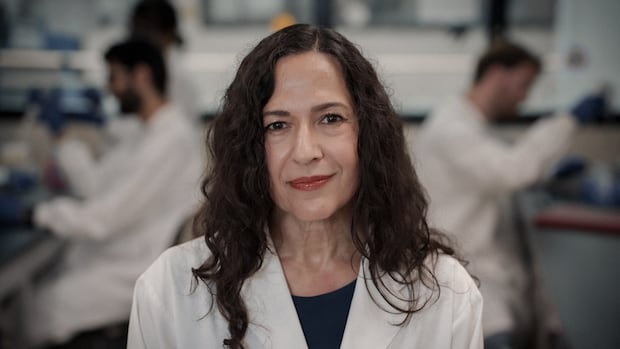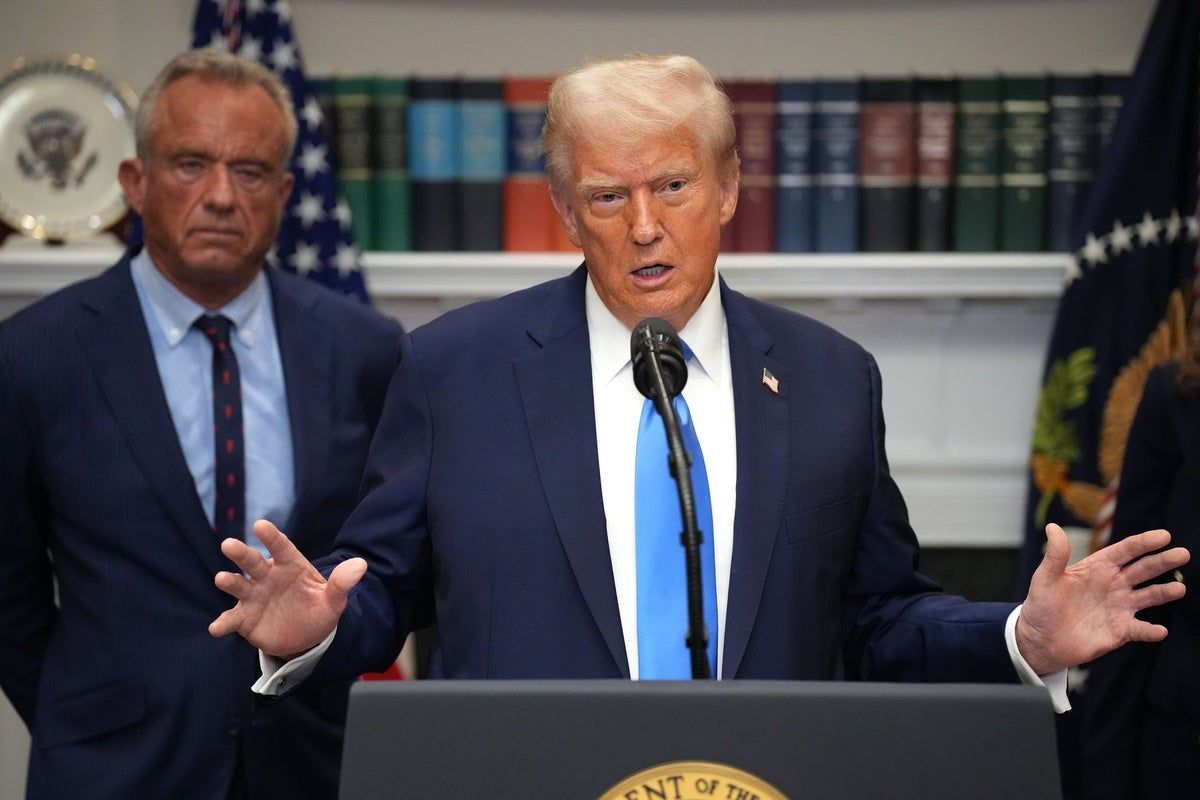Canadian researchers say they've had to stop offering kids with cancer places in some clinical trials because of funding and policy changes in the United States.
The U.S. government is halting funding for some pediatric clinical trials outside the U.S., and not renewing funding for the Pediatric Brain Tumor Consortium, a network of experts that conducts clinical trials and focuses on improving treatments for brain tumours.
The network's only Canadian site is at Toronto's Sick Kids hospital.
Dr. Jim Whitlock, chair of the C17 Council representing Canada's pediatric cancer programs, and division head of hematology/oncology at Sick Kids, said they have had to stop enrolling new patients in three clinical trials because of the change. Current patients can continue to receive treatments.
WATCH | What the cuts mean for Canadian research — and children: U.S. funding cuts shut Canadian children out of brain cancer trials Duration 1:56 The U.S. government is not renewing funding for the Pediatric Brain Tumor Consortium, a network of experts focused on improving treatments for brain tumours, and Toronto's SickKids Hospital has had to stop enrolling kids in some new trials as a result.
"These are some of the most promising therapies for children with those particular diseases, and there are really not studies of equivalent promise that we have access to," Whitlock said.
The U.S. National Institutes of Health, the agency responsible, said the consortium's work will move to another network that also has sites in Canada — but is facing a freeze on funding for trials outside the U.S.
That network, the Pediatric Early Phase Clinical Trial Network (PEP-CTN), has two Canadian sites, one at Sick Kids and another at the CHU Sainte-Justine children's hospital in Montreal.
"This change is worrisome," said Dr. Thai Hoa Tran, PEP-CTN's medical director in Canada, and a pediatric oncologist at Ste-Justine.
Tran says two Canadian clinical trials for pediatric cancers have stopped enrolling patients due to the freeze.
"The message that we have received is that enrolment has ceased for Canadian children," said Tran.
In a statement to CBC News, PEP-CTN chair Elizabeth Fox said the network learned in August that while its overall funding would continue, funding for non-U.S. sites was on hold and enrolment of new patients outside the U.S. was paused.
Clinical trials can be last option
Childhood cancer is rare, with about 1,000 children under 15 diagnosed in Canada each year. While most respond well to treatment, not all do. In those cases, clinical trials can be a last option, says Dr. Sheila Singh, a pediatric neurosurgeon at McMaster University.
"Very often with pediatric brain cancer, we come to a point where it's no longer treatable by standard therapeutic methods and the only hope for these children is to seek an experimental therapy," she said.
Dr. Sheila Singh, a chief pediatric neurosurgeon at McMaster Children's Hospital, says that without access to clinical trials in the U.S., Canadian doctors can't offer their patients experimental therapy options. (Turgut Yeter/CBC)
Clinical trials are for the hardest-to-treat cases, so the number of affected children is small, but Singh says losing access to the trials still represents a big loss for potential patients and for future research.
"We actually had two patients recently who had difficult-to-treat, treatment-refractory brain cancers who could have been eligible for one of those trials," she said.
"But now those trials have been closed, and so we can't offer those hopeful and promising experimental therapy options."
The patient perspective
When it comes to cases of pediatric cancer, no decision is easy for parents, says Keith McIntosh, chair of Ac2orn, an advocacy group for families of children with cancer.
When McIntosh's son was diagnosed with brain cancer at age nine, he had surgery, proton radiation and chemotherapy. He's now 17 and set to graduate high school in Ottawa.
After treatment, he also took part in a clinical trial, testing a medication to help the brain recover.
McIntosh says he worries about other kids losing access to similar opportunities.
"Losing any option that provides an opportunity for a cure or for a meaningful benefit … can be devastating," he said.
Three-year-old Emmett Doolan's parents learned she had an aggressive brain tumour just days after she was born.
She started chemotherapy at three weeks old and soon after joined a clinical trial at the BC Children's Hospital for a treatment targeting her specific type of tumour. The oral administration of the drug allowed her to be treated in her home community of Kitamaat Village.
"It's been the best thing that ever happened to her," said Emmett's mother, Lena Doolan.
"With all the harsh side effects with chemo, I don't think she would have lasted this long," she said.
Canada should boost capacity
Given ongoing funding and policy changes in U.S. health care under the Trump administration, researchers say Canada should boost its capacity to do more clinical trials here.
"We need our federal government to help break down the barriers that are impeding efficient clinical trial conduct in Canada," said Dr. P.J. Devereaux, a cardiologist and professor at McMaster University.
Dr. P.J. Devereaux, a cardiologist, professor and director of the Division of Perioperative Care at McMaster University, says the federal government needs to 'break down the barriers' impeding clinical trials in Canada. (Turgut Yeter/CBC)
"We are a very complicated and expensive place to do research," said Kathy Brodeur-Robb, executive director at C17 Council.
She says this country needs to position itself to be less reliant on the U.S.
"Canada does need to get its act together."
The Canadian Institutes of Health Research said in a statement it recognized "with recent funding and policy changes in the United States, this has been a difficult and unsettling time for the research community," and said it is working to assess the full impact of the changes.
The NIH said it will work to find ways for Canadian institutions to enrol in clinical trials in the future, once the transition is complete.
[SRC] https://www.cbc.ca/news/health/pediatric-cancer-clinical-trials-1.7642673
 Visit the website
Visit the website



